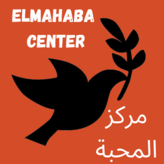Statements
Mission
To strengthen our communities through collective care, cultural awareness, and knowledge towards liberation and social justice.
Background
In June 2019, three Coptic women got together to form a foundation for the Coptic--and Arabic-speaking at general--communities in Nashville on the basis that we must honor our cultures to build our community through the care we need to support each other. We started with a podcast because we know that theory must guide practice, and then we built our youth programming in the fall of 2019, sparking a new voice in Antioch. In January of 2020, we added to our adult initiatives because we believe that community service is holistic and not one-dimensional: to take care of the child of color is to take care of the parent of color, the immigrant, so we started Thursday livestreams to offer basic awareness and knowledge of rights to Arabic speakers.
Soon, we hope to find a space--a home--in Antioch, and build even further our impact through our volunteers who tutor, serve, and build community.
Impact
In 2020, we had three major impacts in South Nashville.
Our first major impact is becoming the first formalized informational source for Arabic-speaking peoples about local, current events. Hosted by community members, and in Arabic weekly, we supported the communities in a culturally-nuanced way about COVID-19, unemployment, and resources. The livestreams created intersecting spaces between Muslims and Christians who speak Arabic.
Our second major impact is that, without a space, we supported over 75 students apply to college, prepare for the ACT, and improve their academic grades with local volunteers who are from the same background. That power of representation and connection also nourishes our students to imagine alternatives for their future, so our tutoring program indeed builds confidence, solidarity, and emotional stability.
Our third major impact is distributing over 700 COVID-19 kits, answering hundreds of dms (direct messages) about unemployment, virtual learning, food resources, stimulus checks, etc. in Arabic and English, and offering rapidly wrap-around services for our communities during COVID-19.
Needs
Because we serve students, particularly low-income students, we are always in need of general school supplies from mini white boards to Texas Instrument calculators to paper and notebooks. We are also building a library of diverse-representation books for our elementary students to read and to engage with in tutoring.
On a larger scale, we're campaigning for a cultural space in Antioch, TN. We are budgeting our donations to include rent for an office space in Antioch in the next 1-2 years.
CEO Statement
To my family in Nashville:
They define a civilization not by the production of its labor, but by the production of their leisure--that is, art, literature, game. We know this because we come from a great civilization ourselves that were the first to write, to tell stories, long and complicated along the walls we built for ourselves. We know this because we ourselves are the images of this civilization, born on the Nile, that rests still, even in Nashville, on the Nile.
It is here, in Nashville, that we see the greatest of what Arabic speakers, and particularly Copts, have to offer their communities locally and internationally. We see artists. We see business(wo)men. We see photographers and rappers and hymnologists. It is here in Nashville that we witness the greatest of our Nile culture--a continuation of our story.
And this is our mission at Elmahaba, so that we may bring the glory of our friends to the foreground of our histories, for we are the history of yesterday, made today.
At the heart of Elmahaba, at the heart of our mission, comes the question that I asked our Board members at our first meeting: What do we leave the next generation?
We are at a critical point of our production, of our civilization, of our histories, of our lives, where we can determine, finally, what we leave to our children, here, far from the Nile, but in breath with it. How will we be remembered? How will they live through us and by us?
Join us in answering. Join us in building programming to take care of the least of these. Join in our education. Join us in care.
Bi'elmahaba,
Lydia Yousief
Executive Director
Service Categories |
|
| Primary Category: | Human Services - Centers to Support the Independence of Specific Populations |
| Secondary Category: | Human Services - Neighborhood Centers |
| Tertiary Category: | - |
Areas Served
In particular, we serve Arabic speakers along the African corridor that is Murfreesboro Road, which runs parallel to Nolensville Road.
| TN - Davidson |

